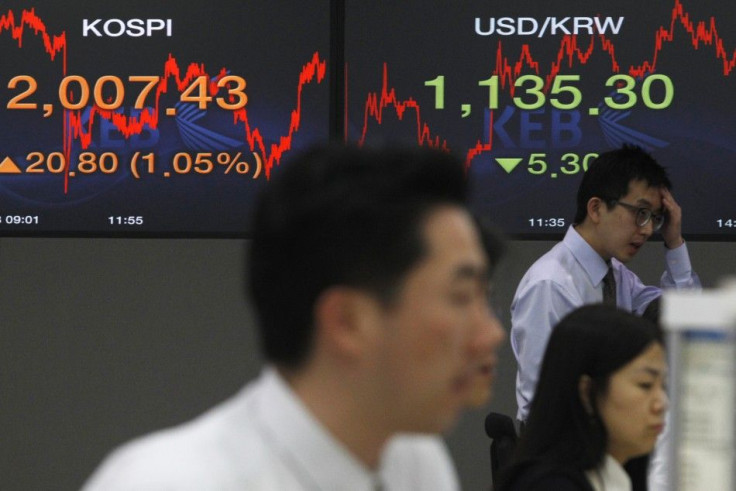South Korea’s Economy Facing Slowdown Amid Global Worries

South Korea's announcement of the unexpected interest rate cut this week has given an indication to market players that policymakers are unnerved by the country's economic condition.
South Korea's central bank cut the interest rate Thursday for the first time in over three years in a move to stimulate the faltering economic growth of the country. The Bank of Korea (BoK) said that it had decided to cut the interest rate by 25 basis points to 3 percent. This easing in the monetary policy is seen as a much-needed thrust to boost liquidity in the financial system and help the economy regain its growth momentum.
While cutting the interest rate, the central bank said that growth was likely to be weaker than it had previously expected, with a negative output gap persisting for longer. South Korea's economic growth forecast was reduced by the central bank to 3 percent this year, down from 3.5 percent prediction made in April.
There is a possibility that the BoK will have to further cut the growth forecast for the year if the situation in Europe worsens, subsequent to the re-emergence of debt problems in Spain. Now that is has started to acknowledge the risks to growth, we suspect that the BoK is likely to cut again fairly soon. We maintain our forecast that the policy rate will end the year at 2.75 percent, Daniel Martin, an economist at Capital Economics, said.
The bank said that in last month's policy meeting, where the board unanimously decided to hold rates at 3.25 percent for a twelfth consecutive month, a rate cut was not discussed. At that time, the accompanying statement mentioned downside risks posed by the euro zone crisis and expressed concern over the rising inflation.
However, the figures in June indicated that inflation had been diminishing, which must have been a major reason for the present interest rate cut. Headline inflation was a low 2.2 percent year-over-year in June and has been within the lower half of BoK's estimate of 2 to 4 percent range for four consecutive months. Meanwhile, the core inflation is just 1.5 percent.
Meanwhile, the external outlook is looking bleak. South Korea's exports in June were up by a measly 1.3 percent year-over-year. Exports to the EU have been falling and shipments to the U.S. and China have also been disappointing.
With the euro zone expected to head into a deep recession in the second half of the year, conditions faced by South Korea's exporters are unlikely to improve soon. The business sentiment too is not expected to be positive as a result of the debt crisis faced by the euro zone, which in turn will affect the job market.
© Copyright IBTimes 2025. All rights reserved.





















